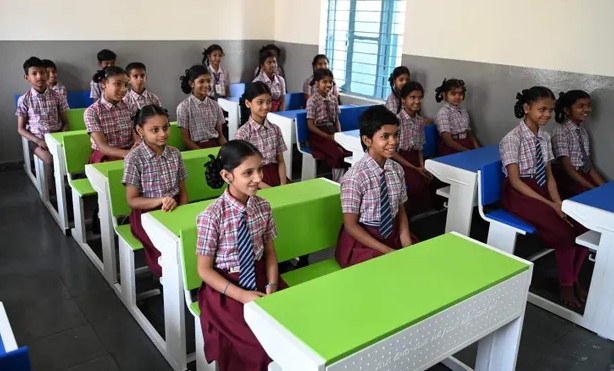By Hannah Ellis-Petersen/The Guardian
New Delhi, April 6: The Indian government has been accused of rewriting history to fit its Hindu nationalist agenda after school textbooks were edited to remove references to Mahatma Gandhi’s opposition to Hindu nationalism, as well as mention of a controversial religious riot in which the prime minister, Narendra Modi, was implicated.
Textbooks were also revised to remove chapters on the history of the Mughals, the Muslim rulers who controlled much of India between the 16th and 19th centuries.
The ruling Bharatiya Janata party (BJP), which has pursued a Hindu nationalist agenda that has moved India away from its secular foundations, has been open about its desire to rewrite the country’s history and break away from what it describes as the “slave mentality” of colonial oppressors. “It is our responsibility to write our history,” said the home affairs minister, Amit Shah, in a 2019 speech.
Since the BJP came to power in 2014, there have been multiple amendments to textbooks, with critics alleging a “saffronisation” of the curriculum in schools and universities, a reference to the colour favoured by Hindu nationalists.
In recent years, references to the Mughals, whom Hindu nationalists consider to be Muslim oppressors, have been repeatedly removed or amended, while references to the hardline Hindu nationalist ideologue Vinayak Damodar Savarkar as a “most celebrated freedom fighter” and a “great patriot” have been added.
The new editions of political science and history textbooks published by the National Council of Educational Research and Training (NCERT) drew controversy over the amendments, some of which were introduced quietly and without the usual public notifications.
Among the changes to the political science textbook for 17- and 18-year-olds was the removal of a reference to the dislike Hindu nationalists had for Gandhi, India’s famed freedom fighter, and how they made multiple attempts to assassinate him.
Gandhi was killed by a Hindu nationalist, Nathuram Godse, in 1948. Gandhi is still reviled by some Hindu nationalists for his views on Hindu-Muslim unity, and since the BJP came to power, there has been a growing reverence among hardliners for his killer.
The amended textbooks softened mention of Godse and also removed reference to the ban faced by the militant Hindu organisation Rashtriya Swayamsevak Sangh (RSS) after Gandhi’s assassination.
According to scrutiny of the textbooks by the Indian Express newspaper, which revealed the amendments, multiple references to the Gujarat riots have also been purged from textbooks by NCERT.
The riots, which took place in 2002, are a particularly sensitive topic for Modi, who was chief minister of Gujarat at the time and was accused of being complicit in the violence, which involved brutal attacks on Muslim families and the deaths of more than 1,000 people, mostly Muslims. A BBC documentary exploring Modi’s role in the riots was recently banned by the government.
After the recent revisions, references to the riots have now gone from all social science textbooks for those aged between 11 and 18.
NCERT has also removed chapters relating to the Mughal courts from history books for 17- and 18-year-olds, under measures to “streamline” the curriculum and reduce the workload of students after the Covid-19 pandemic.
Historians and opposition politicians widely condemned the textbook revisions. “You can change the truth in books but you cannot change the history of the country,” said Mallikarjun Kharge, the president of the opposition Congress party.
Aditya Mukherjee, a professor of contemporary Indian history at Jawaharlal Nehru University, said the removal of Mughal history from the textbook was an attempt to “weaponise” and “erase” history to suit the government’s political agenda. “Whenever we have witnessed erasure of a particular community from our history, it is usually followed by a genocide of the community,” Mukherjee told the news channel NDTV.
The NCERT chief, Dinesh Saklani, said the changes should not be “blown out of proportion” and all changes had been made by an “expert panel”.
The BJP’s national spokesperson, Gopal Krishna Agarwal, said it was “not rewriting history” but instead a way to rebalance the “biased approach” of some historians. The ministry of education did not respond to a request for comment.
END



























































